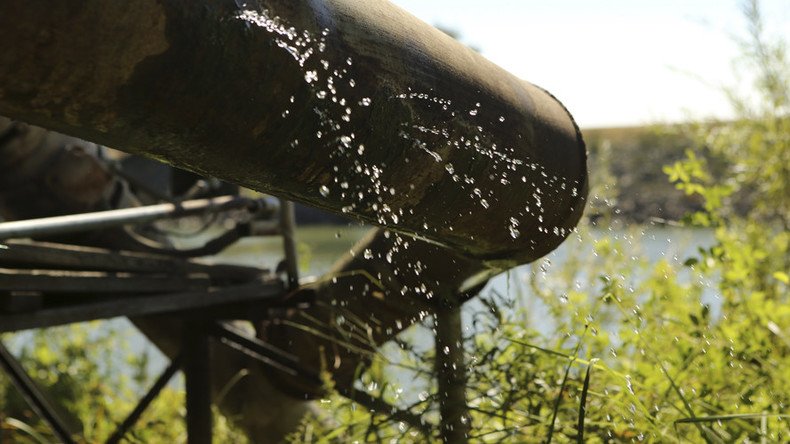California’s Waterfix: Feds determine no endangered species jeopardized, approve Delta water tunnels

California Governor Jerry Brown’s plan for two massive tunnels to divert water from the state's largest river, the Sacramento, to the farm-rich Central Valley and populous Southern California, won’t threaten endangered species, federal agencies say.
The California Department of Water Resources (DWR) announced Monday that federal agencies responsible under the Endangered Species Act (ESA) have given the project first approval after concluding that the proposed tunnels would not jeopardize the existence of endangered species in the Sacramento-San Joaquin Delta, a central hub of the state’s water system.
In their biological opinions, the National Marine Fisheries Service (NOAA) and US Fish and Wildlife Service (USFWS) both concluded that the project “is not likely to jeopardize the continued existence” of endangered or threatened species or “destroy or adversely modify designated critical habitat” for those species.
The $15.7 billion proposed project, dubbed “WaterFix,” calls for the construction of two massive 35-mile-long tunnels to carry water from the Sacramento River to existing pumping plants in the south Delta. The project has been in the planning stages for more than a decade.
The National Marine Fisheries Service & U.S. Fish and Wildlife Service gives initial OK to California water tunnels https://t.co/g2AnVR3CD7pic.twitter.com/sKgLaZkYUp
— Water Mark 🚰 (@OtayMark) June 26, 2017
The project’s backers say it will modernize California’s aging water delivery system and protect the state’s economy and public safety.
Jeffrey Kightlinger, general manager of the Metropolitan Water District of Southern California, one of the project’s biggest proponents, called the federal approval “an important milestone.”
#AmericasLawyer: #DuPont’s Dumping of #GenX Toxin in North Carolina Water Could Be the Next #Flinthttps://t.co/l3eywdtRzw@americaslawyer
— RT America (@RT_America) June 24, 2017
“For too long California’s water supplies have been at risk and subject to cutbacks. All the while, the Delta ecosystem has been failing. A better system is needed now and for the future to safeguard California’s drinking water and reduce conflicts with our native species,” Kightlinger said in a statement. “This is an encouraging sign that California can modernize the heart of its water system in a manner that is good for both the Sacramento-San Joaquin Delta environment and the state’s economy.”
The biological opinions released Monday analyzed the effects the twin tunnels would have on ESA-listed species, including the threatened Delta smelt, endangered Sacramento River winter-run Chinook salmon, threatened spring-run Chinook salmon, threatened North American green sturgeon, threatened California Central Valley steelhead and endangered Southern Resident Killer Whales.
Opponents say that the tunnels would harm the environment and native fish nearing extinction. Many groups have said they will challenge the approvals to stall the project as long as possible.
“The science in this decision was cherry-picked and not representative of the true scope of harm to endangered species who depend on a healthy San Francisco Bay-Delta estuary for their survival,”said Barbara Barrigan-Parrilla, Executive Director of Restore the Delta, a group that represents farmers and residents in the system. “We are pursuing legal remedies with our coalition.
The DWR said it would “monitor constantly, test hypotheses regularly, adjust operations accordingly, and reassess” the fish populations and ecology of the Delta during the project to ensure that the environment is protected.
“In the Delta, we always will be adjusting to improve resiliency and protect the environment. What won’t change is our compliance with the state and federal Endangered Species Acts,” said Bill Croyle, acting director of the DWR, according to a statement.
In its statement, the DWR said the project would make it easier to protect the state’s water sources against natural disasters such as earthquakes and sea-level changes due to climate change.
“We are poised to take action to better protect our state water supplies and native fisheries,” John Laird, California’s secretary for natural resources, said in a statement. “After 10 years of study, analysis, dialogue and scientific inquiry, we have come to a shared vision – and feasible approach – for how best to meet the co-equal goals of providing a more reliable water supply for California and protecting, restoring and enhancing the Delta ecosystem.”













